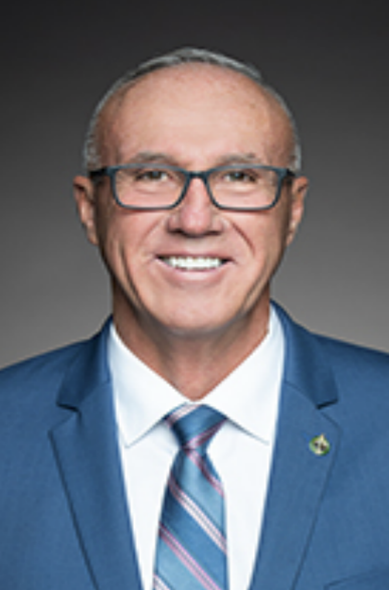Table of contents
Appearance details
Date: Monday, June 6, 2022
Location: NDHQ, Malone Room
Time: 3:30 to 5:30 pm
Appearing:
- The Honourable Anita Anand (First Hour Only), Minister of National Defence
- Shelly Bruce, Chief, Communications Security Establishment
- Bill Matthews, Deputy Minister of National Defence
- Gen Wayne D. Eyre, Chief of the Defence Staff, Canadian Armed Forces
- Col Robin Holman, Acting Judge Advocate General, Office of the Judge Advocate General
Details: The Minister of National Defence will appear alongside senior officials to speak on the Main Estimates, 2022-2023.
Committee information and potential questions
Committee membership and profiles
- Hon. John McKay, Chair, LPC (Scarborough-Guildwood, ON)
- Hon. Kerry-Lynne D. Findlay, Vice-Chair, CPC (South Surrey-White Rock, BC)
- Christine Normandin, Vice-Chair, BQ (Saint-Jean, QC)
- Todd Doherty, CPC (Cariboo – Prince George, BC)
- Darren Fisher, LPC (Dartmouth – Cole Harbour, NS)
- Cheryl Gallant, CPC (Renfrew-Nipissing-Pembroke, ON)
- Bryan May, LPC (Cambridge, ON)
- Glen Motz, CPC (Medicine Hat – Cardston – Warner, AB)
- Lindsay Mathyssen, NDP (London-Fanshawe, ON)
- Jennifer O'Connell, LPC (Pickering-Uxbridge, ON)
- Emanuella Lambropoulos, LPC (St-Laurent, QB)
- Sven Spengemann, LPC (Mississauga-Lakeshore, ON)
Hon. John Mckay, Chair, LPC (Scarborough-Guildwood, ON)

- NDDN since 2021 (former NDDN member 2011-13)
- Former Parliamentary Secretary to the Minister of National Defence
Key interests
National defence, human rights
Election to the House of Commons
- First elected in 1997; re-elected in 2015
Professional background
- B.A. in Arts from the University of Toronto Scarborough
- LL.B. from Queen’s University
- Lawyer
Committee membership
- Chair of the Standing Committee on National Defence (2021-)
- Chair of the Subcommittee on Agenda and Procedure of the Standing Committee on National Defence
- Member of the Standing Committee on Liaison (2021-)
- Chair of the Standing Committee on Public Safety and National Security (2017 to 2021)
- Chair, Subcommittee on Agenda and Procedure of the Standing Committee on Public Safety and National Security
- Former Vice-Chair on the Standing Committee on Environment and Sustainable Development (2013 to 2015)
- Former member of the Standing Committee on National Defence (2011 to 2013)
Political and parliamentary roles
- Former Parliamentary Secretary to the Minister of National Defence (2015 to 2017)
- Former Parliamentary Secretary to the Minister of Finance (2003 to 2005)
- Former Critic for National Defence (2011-2013), Environment (2013 to 2015), Industry (2008 to 2009), and Treasury Board (2006 to 2007)
- Co-Chair of the Canada-US Interparliamentary Group (2021-)
- Chair of the Canada-UK Interparliamentary Group (2020-)
- Counsellor of the Canadian NATO Parliamentary Association (2020-)
- Canadian Branch of Commonwealth Parliamentary Association (2021-)
Points of interest to CSE
- One of the few Government-side MPs who voted in favour of the CPC’s Opposition Motion in November 2020, which called on the Government to make a decision on the Huawei Ban
- During SECU’s study of Bill C-59 asked what contributions the Bill would make to address cyber threats to private infrastructure
- Public Safety Committee, December 2020: McKay expressed concern surrounding the lack of clarity for reporting cyber incidents for Canadians
Other interests
- Human rights, trade, unions, law
Hon. Kerry-Lynne D. Findlay, Vice-Chair, CPC (South Surrey-White Rock, BC)

- NDDN since 2021
- Shadow Minister for National Defence
Key interests
CAF support, small businesses, law
Election to the House of Commons
- First elected in 2011, re-elected in 2019
Professional background
- Studied history, political science and law at the University of British Columbia
- Completed advanced courses at Harvard Law School and Rotman’s School of Management in Toronto
- Established a law practice in Vancouver
- Established her own law firm, KFindlay Law Group, in 2019
- Served as a BC appointee on the Delta Police Board
Committee membership
- Vice-Chair of the Standing Committee on National Defence (2021-)
- Member of Subcommittee on Agenda and Procedure of the Standing Committee on National Defence
- Member of the Special Committee on Afghanistan (2021-)
- Vice-Chair of the Special Joint Committee on Medical Assistance in Dying (2021)
- Member of the Standing Committee on Justice and Human Rights (2020 to 2021)
- Vice-Chair and Member of the Standing Committee on Environment and Sustainable Development (2020)
Political and parliamentary roles
- Shadow Minister for National Defence (2021-)
- Shadow Minister for Environment and Climate Change (2019 to 2020)
- Minister of National Revenue (2013 to 2015)
- Associate Minister of National Defence (2013)
- Parliamentary Secretary to the Minister of Justice (2011 to 2013)
- Member on the: Canada-China Legislative Association (2021), Canada-Europe Parliamentary Association (2021), Canada-Ireland Interparliamentary Group (2021), Canada-Israel Interparliamentary Group (2021), Canadian Branch of the Commonwealth Parliamentary Association (2021), Canada-Unites States Interparliamentary Group (2021), Canada-United Kingdom Interparliamentary Association (2021), and others
Points of interest to CSE
- At the Committee of the Whole (Supplementary Estimates B), Dec 2021: Posed a question to Minister Joly showing concern over Canada not being a part of the new Three Eyes Partnership with the US, UK and Australia.
- COVID-19 Pandemic Committee, May 2020: Posed question showing concern over the government partnering with a Chinese company backed by the Chinese military to conduct research into COVID-19. Showed concern that the Chinese military has been accused of trying to hack research data by our own intelligence agencies.
Other interests
- CAF/military support, small businesses, law
Christine Normandin (vice-chair), BQ (Saint-Jean, QB)

- NDDN since 2021
Key interests
Law, immigration and refugees
Election to the House of Commons
- First elected in 2019
Professional background
- Obtained Bachelor’s of Science in Biomedical Sciences in 2006
- Appointed lawyer in 2015, eventually specializing in international family law and child abduction
- Sat on the Board of Directors of the École secondaire Marcellin-Champagnat and was president of the Bloc Québécois Political Commission
- Named Volunteer of the Year 2018 by the Young Bar Association of Montreal for the hours she devoted to helping citizens prepare for their court hearings
Committee membership
- Vice-Chair for the Standing Committee on National Defence (2021-)
- Member of Subcommittee on Agenda and Procedure of the Standing Committee on National Defence
- Vice-Chair for the Standing Committee on Citizenship and Immigration (2020 to 2021)
- Former Member of the National Security and Intelligence Committee of Parliamentarians (NSICOP) (2020)
Political and parliamentary roles
- National Defence Critic for the Bloc Québécois (2021-)
- Deputy House Leader of the Bloc Québécois (2019-)
- Immigration, Refugees and Citizenship Critic for the Bloc Québécois (2019 to 2021)
Points of interest to CSE
- Canada-China Relations Committee, May 2021: Concerned over Canada’s “laxed” stance on Huawei in comparison to the other Five Eyes partners
- Business of Supply- Government Orders, February 2021: Concern of China’s mass surveillance regime and the surveillance capacities of Huawei
Other interests
- Law, immigration and refugees, international students
Todd Doherty, CPC (Cariboo – Prince George, BC)

- NDDN since 2021
Key interests
Veterans and CAF issues
Election to the House of Commons
- First elected in 2015
Professional background
- Former aviation executive, serving as a top aviation business development professional
- Promoted regional, provincial and national passenger, cargo and tourism opportunities
- Small business owner
Committee membership
- Member of the Standing Committee on National Defence (2021-)
- Vice-Chair of Standing Committee on Procedural and House Affairs since 2020
- Member of the Subcommittee on Agenda and Procedure of the Standing Committee on Procedure and House Affairs
- Former Vice-Chair of the Standing Committee on Transport, Infrastructure and Communities (2020)
- Former Vice-Chair of the Standing Committee on Fisheries and Oceans (2017 to 2019)
Political and parliamentary roles
- Deputy Shadow Minister for National Defence (2021-)
- Special Advisor on Mental Health and Wellness in Shadow Cabinet (2020-)
- Former Critic for Transport and Former Critic for Fisheries and Oceans
- Member of the Parliamentary Associations of Canada-Europe, Canada-Africa, NATO, ParlAmericas, the Canada Group of Inter-Parliamentary Union, and the Inter-Parliamentary Groups of Canada-United States, Canada-Germany, Canada-Ireland, Canada-Israel, Canada-Italy, Canada-Japan and the Canada-China Legislative Association (2020)
Points of interest to CSE
- CACN, 2020: Spoke on China-Canadian relations with respect to Michael Spavor and Michael Kovrig and a request to invite Ambassador Barton to appear before committee.
Other interests
- Championed Bill C-211, An Act Respecting a Federal Framework on Post-Traumatic Stress Disorder
- At-risk youth, Crisis intervention, opioid crisis, mental health, veterans, CAF
Darren Fisher, LPC (Dartmouth – Cole Harbour, NS)

- NDDN since 2016
- Parliamentary Secretary to the Minister of Seniors
Key interests
Economic development, National Pharmacare, CAN-NATO relations
Election to the House of Commons
- First elected in 2015
Professional background
- Former small business owner and community volunteer
- Elected to Halifax Regional Council in 2009 and 2012, and elected as Deputy Mayor in 2014
Committee membership
- Member of the Standing Committee on National Defence (2021-), and (2016 to 2019)
- Member of the Standing Committee on Public Safety and National Security (2021-)
- Member of the Standing Committee on Health (2020 to 2021)
- Member of the Subcommittee on Agenda and Procedure of the Standing Committee on National Defence (2017 to 2019)
- Member of the House Standing Committee on Environment and Sustainable Development (2016 to 2019)
Political and parliamentary roles
- Parliamentary Secretary to the Minister of Seniors (2021-)
- Parliamentary Secretary to the Minister of Economic Development and Official Languages (2021)
- Parliamentary Secretary to the Minister of Health (2019 to 2021)
- Counsellor for the Canadian NATO Parliamentary Association (2020)
- Member of the Canadian NATO Parliamentary Association, Canada-United States Interparliamentary Group and the Canada-United Kingdom Interparliamentary Association (2018 to 2019), and others
Points of interest to CSE
- NDDN Committee, Briefing by the Commissioner of CSE, March 2017: Concern over other Five Eyes partners not keeping their promise to protect Canadian data and spy on each other’s citizens
- NDDN Committee, Canada’s Involvement in NATO, January 2018: Concern over if Canadian and NATO infrastructure is safe from data breaches and if there is a quick response to new cyber threats
Other interests
- Pharmacare, environmental issues, mental health, literacy and poverty
Cheryl Gallant, CPC (Renfrew-Nipissing-Pembroke, ON)

- NDDN since 2001
Key interests
Cyber security, Op IMPACT, BMD, CFB Petawawa is in her riding
Election to the House of Commons
- First elected in 2000
Professional background
- B.SC. in Chemistry from the University of Western Ontario
- Chief Administrative Director for a family-owned small business/professional practice
- Chairperson of the City of Pembroke Downtown Development Commission
- Member of the Economic Advisory Committee for Pembroke
- Former researcher with the University of Toronto on biochemistry
Committee membership
- Member of the Standing Committee on National Defence (2006-)
- Former Vice-Chair of the Standing Committee on National Defence (2016 to 2017)
- Former Member of the Standing Committee on Industry, Science and Technology (2014 to 2015)
Political and parliamentary roles
- Former Deputy House Leader of the Official Opposition
- Member of the Canada-China Legislative Association (2021)
- Director of Canada-Africa Parliamentary Association (2020-)
- Shadow Cabinet Minister for Veterans Affairs and Economic Development Initiative for Northern Ontario (2019 to 2020)
- Vice-Chair of the Canadian NATO Parliamentary Association (2006-)
- Several Parliamentary Associations including Canada-China Legislative Association, Canada-Europe Parliamentary Association, and Canadian Delegation to the Organization for Security and Co-operation in Europe Parliamentary Assembly
Points of interest to CSE
- “E-security” is a popular topic for Gallant. Issues of greatest interest in this area include:
- Cybersecurity of the electricity grid; NATO and NORAD and cybersecurity, including IoT and AI; recruiting cybersecurity experts into the military; how CSE works with the private sector; information sharing in the Five Eyes; Russian cyberattacks against Georgia
Other interests
- Op IMPACT, CFB Petawawa is in her riding, Ballistic Missile Defence, peacekeeping
Bryan May, LPC (Cambridge, ON)

- NDDN since 2021
- Parliamentary Secretary to the Minister of National Defence
Key interests
Veterans affairs, community activism
Election to the House of Commons
- First elected in 2015
Professional background
- BA, University of Waterloo
- Senior management of various non-profit organizations
- Executive Treasurer of the Social Planning Council of Cambridge and North Dumfries
Committee membership
- Member of the Standing Committee on National Defence (2021-)
- Member of Subcommittee on Agenda and Procedure of the Standing Committee on National Defence
- Chair of the Standing Committee on Veterans Affairs (2020 to 2021)
- Chair of the Subcommittee on Agenda and Procedure of the Standing Committee on Veterans Affairs (2020 to 2021)
- Member of the Standing Committee on Liaison (2020 to 2021)
- Member of the Standing Committee on Natural Resources (2020 to 2021)
- Chair of the Standing Committee on Human Resources, Skills and Social Development and the Status of Persons with Disabilities (2015 to 2019)
Political and parliamentary roles
- Parliamentary Secretary to the Minister of National Defence (2021-)
- Member of the Canadian NATO Parliamentary Association (2018 to 19), Canada-United States Interparliamentary Group (2018 to 19), Canada-Ireland Interparliamentary Group (2018 to 19), Canada-China Legislative Association (2016 to 17), and others
Points of interest to CSE
- NIL
Other interests
- Community activism, veterans affairs, Sponsor of Bill C-272, An Act to Amend the Copyright Act: C-272 gives a small amount of control back to the consumer and will allow provinces to create their own right-to-repair legislation. This bill completed its second reading in June 2021
Glen Motz, CPC (Medicine Hat – Cardston – Warner, AB)

- NDDN since 2021
Key interests
- Seniors, gun control, health care, rural crime
Election to the House of Commons
- First elected in 2016 (by-election)
Professional background
- Attended Hillcrest Christian College
- Began a policing career with the Medicine Hat Police Service
- Received several awards including the Queen Elizabeth II Diamond Jubilee Medal
Committee membership
- Member of the Standing Committee on National Defence (2021-)
- Former Member of the National Security and Intelligence Committee of Parliamentarians (NSICOP) (2020)
- Member of the Standing Committee on Public Safety and National Security (2017-)
- Former Member of the Standing Joint Committee for the Scrutiny of Regulations (2017)
Political and parliamentary roles
- Shadow Cabinet Minister for Public Safety and Emergency Preparedness (Associate) (2019 to 20)
- Former Member of the Canadian NATO Parliamentary Association, Member of the Canadian Section of the ParlAmericas, Member of the Canada-United States Interparliamentary Group and several others (2017 to 2018)
Points of interest to CSE
- INDU, May 2020: CSE appearance
- Interest in levels of fraud and the Canadian Anti-Fraud Centre
- Asked Scott Jones about front-line health workers being a target of fraud of cyberattacks during the COVID-19 pandemic
- Asked Scott Jones about intellectual property theft through cyberattacks and espionage
- Interest in Chinese state-sponsored actors and foreign influenced activities
Other interests
- Law enforcement, rural crime, seniors, gun control, health care
Lindsay Mathyssen, NDP (London-Fanshawe, ON)

- NDDN since 2021
Key interests
Racial equality, affordable childcare, gender equality
Election to the House of Commons
- First elected in 2019
Professional background
- Studied English and Political Science at Queens University
- Studied non-profit management at Western University
- Worked in various assistant roles for four MPs over the past 11 years
- Succeeding her mother, Irene Mathyssen, who is retiring after serving on Parliament Hill for 12 years
Committee membership
- Member of the Standing Committee on National Defence (2021-)
- Member of Subcommittee on Agenda and Procedure of the Standing Committee on National Defence
- Member of the Standing Committee on the Status of Women (2020 to 2021)
- Subcommittee on Agenda and Procedure of the Standing Committee on the Status of Women (2020 to 2021)
- Member of the Subcommittee on Private Members’ Business of the Standing Committee on Procedure and House Affairs (2020 to 2021)
Political and parliamentary roles
- Deputy Critic for Women and Gender Equality (2021-)
- Critic for National Defence for the New Democratic Party (2021-)
- NDP Deputy House Leader (2021-)
- Member of the Executive on the Canadian Group of the Inter-Parliamentary Union (2020-)
- Member of the Canada-Israel Interparliamentary Group, Canadian Branch of the Commonwealth Parliamentary Association Canada-United States Interparliamentary Group (2021-)
Points of interest to CSE
- NIL
Other interests
- Gender equality, affordable childcare, racial equality
Jennifer O’Connell, LPC (Pickering-Uxbridge, ON)

- NDDN since 2021
- Parliamentary Secretary to the Minister of Intergovernmental Affairs, Infrastructure and Communities
Key interests
Infrastructure investments, climate change, affordable childcare
Election to the House of Commons
- First elected in 2015
Professional background
- Studied Political Science at the University of Toronto
- Worked at a law firm specializing in labour law
- Served as a City Councillor, Regional Councillor and Deputy Mayor in Pickering
Committee membership
- Member of the Standing Committee on National Defence (2021-)
- Member of the Standing Committee on Health (2021)
- Member of the Subcommittee on International Human Rights of the Standing Committee on Foreign Affairs and International Development (2021)
- Member of the National Security and Intelligence Committee of Parliamentarians (2020 to 21)
- Member of the Subcommittee on Agenda and Procedure of the Standing Committee on Finance (2017 to 18)
- Member of the Standing Committee on Finance (2016 to 2018)
Political and parliamentary roles
- Parliamentary Secretary to the Minister of Intergovernmental Affairs, Infrastructure and Communities (2021-)
- Parliamentary Secretary to the Minister of Health (2021)
- Parliamentary Secretary to the Minister of Finance (2018 to 19)
- Previously Member on Canada-Europe Parliamentary Association, Canadian NATO Parliamentary Association, Canadian Delegation to the Organization for Security and Cooperation in Europe Parliamentary Assembly, and others
Points of interest to CSE
- Question Period, May 2021: In relation to the two Chinese scientists fired at the Microbiology Laboratory, O’Connell gave assurance that Canada takes threats to research security and intellectual property very seriously
- House Debate, Petitions, October 2020: Concern of Huawei telecommunications in Canada and how it will affect Canada’s relationship with the Five Eyes allies.
- Also showed concern over Canada’s autonomy and the Chinese government having access to our intelligence through Huawei networks
Other interests
- Affordable childcare, infrastructure investments, climate change
Emanuella Lambropoulos, LPC (St-Laurent, QB)

- NDDN since 2021
Key interests
Gender-based violence, CAF culture change, mental health, veterans affairs
Election to the House of Commons
- First elected in 2017 (by-election); re-elected in 2019
Professional background
- Former secondary school teacher, and worked as a resource aid for students with learning disabilities and autism.
- Long record of volunteer involvement supporting children’s sports and art activities.
Committee membership
- Member of the Standing Committee on National Defence (2021-); Member of the Standing Committee on the Status of Women (2021-present; 2017-2019); Member of the Standing Committee on Public Safety and National Security (2020-2021); Member of the Standing Committee on Industry, Science and Technology (2020-2021); Member of the Standing Committee on Official Languages (2018-2020); Member of the Standing Committee on Veterans Affairs (2017-2018).
Political and parliamentary roles
- Chair of the National Liberal Women’s Caucus (2021-)
- Member of Canadian NATO Parliamentary Association (2018-2019)
- Member of Canada-France Inter-parliamentary Association (2018-2019)
Points of interest to CSE
- NDDN Appearance, Supplementary Estimates C, 2021-22, March 23, 2022: Showed interest in Arctic security and Canada’s readiness considering Russia’s growing threat.
- Also interested in additional technology to detect hypersonics, and modernizing the systems up North.
- NDDN Appearance, Threat Analysis Affecting Canada and the CAF’s Operational Readiness to Meet Those Threats, Feb 16, 2022: Interested in Russian threats in cyberspace, and China and Russia’s growing relationship with one another.
- Also showed concern of ideological warfare and how to protect ourselves in cyberspace.
- NDDN Appearance, Minister of National Defence Mandate Letter and Priorities, Feb. 9, 2022: Showed interest in accomplishing MND’s reference to cybersecurity in her mandate letter.
- Also interested in CSE and CSIS discussing an increase in cyber threats, mainly by China and Russia.
- Another question posed included “What would CSE need in order to help it fulfill its mandate?” Questions were posed to Chief.
- SECU, NCTA 2020, Dec 9, 2020: Interested in the 2020 National Cyber Threat Assessment, specifically the threat of online espionage being much higher for Canadian companies doing business abroad or working directly with foreign State-owned companies.
- Question posed: “I’d like to know if you have any advice for companies that have direct contact with actors who may be sponsored by foreign states that could threaten cybersecurity?”
Other interests
- Gender-based violence, mental health, CAF culture change, veterans affairs
Sven Spengemann, LPC (Mississauga-Lakeshore, ON)

- NDDN since 2016
Key interests
Iraq, CAF security, public safety, Cyber threat mitigation
Election to the House of Commons
- First elected in 2015
Professional background
- Obtained LL.B. from Osgoode Hall Law School
- Doctorate from Harvard Law School (SJD)
- Worked as a Senior Policy Analyst in the Privy Council Office
- Served as a senior UN official in Baghdad with the UN Assistance Mission for Iraq. In Iraq, he negotiated operational protocols with the US Coalition Forces to ensure operational, security and medical support for the UN Mission
- Led a team of international and Iraqi experts to assist the Iraqi Parliament and Kurdistan Regional government with constitutional and legislative reforms
Committee membership
- Member of the Standing Committee on National Defence (2021-)
- Chair of the Standing Committee on Foreign Affairs and International Development (2020-)
- Chair of the Subcommittee on Agenda and Procedure of the Standing Committee on Foreign Affairs and International Development (2021-)
- Member of the Standing Committee on Liaison (2021-)
- Member of the Standing Committee on Public Safety and National Security (2016 to 2019)
Political and parliamentary roles
- Co-Chair of the Canada-Africa Parliamentary Association (2020-)
- Member of the Executive on the Canadian Group of the Interparliamentary Union (2020-)
- Member of the Canada-China Legislative Association, Canada-Germany Interparliamentary Group, Canada-Israel Interparliamentary Group, Canadian NATO ParliamentaryAssociation, Canada-United States Interparliamentary Group, and others
Points of interest to CSE
- In favour of Bill C-59 and spoke a great deal in April 2018 on clarifying the purpose and importance of the Bill to other members of Parliament
- January 2019: Concern of financial cyber fraud and if there is anything else the government can do to examine more closely
- Speaks multiple times on the importance of small businesses using the CCCS to develop good cyber infrastructure
- September 2018: Asked multiple questions on the state on Russia-China relations and China’s geopolitical interests
- May 2016: Question pertaining to CSE’s powers on gathering information with respect to an individual who holds dual citizenship
Other interests
- Human rights, gender equality, UN missions, institutional design, China-Russia relations
Backgrounder on the Standing Committee on National Defence (NDDN) - 44th Parliament, 1st Session
Mandate
NDDN studies the legislation, activities and expenditures of the Department of National Defence, the Canadian Armed forces. It also examines the domestic, continental, and international security environment.
Appearances
- March 28, 2022: CSE appeared alongside CSIS to brief the committee on threats affecting Canada and the Canadian Armed Forces’ operational readiness to meet those threats.
- February 9, 2022: CSE appeared alongside the Minister of National Defence and other senior officials to discuss the Minister’s mandate letter and priorities.
- February 7, 2022: CSE appeared alongside the Minister of National Defence, and the Director of CSIS, as well as other senior officials to brief NDDN members’ situational awareness of the threats they themselves face from foreign interference, as well as a discussion of the threats Canada faces from foreign interference.
- November 2, 2020: CSE appeared alongside the Minister of National Defence and other senior officials to speak on Main Estimates, 2020 to 2021.
Key studies
- Notable activities/meetings:
- Briefing by the Commissioner of the Communications Security Establishment (March 2017)
- Briefing on the Ongoing Activities of the Communications Security Establishment (May 2016)
- Studies in recent years:
- threat analysis affecting Canada and the Canadian Armed Forces’ operational readiness to meet those threats
- addressing sexual misconduct in the Canadian Armed Forces
- impacts of the COVID-19 pandemic on Canadian Armed Forces operations
- diversity within the Canadian Armed Forces
- Canada’s contributions to international peacekeeping
Previous meetings (current session)
- Monday, January 31, 2022: Committee Business
- Wednesday, February 2, 2022: Threat Analysis Affecting Canada and the CAF Operational Readiness
- Monday, February 7, 2022: Briefing by CSIS and CSE
- Wednesday, February 9, 2022: Briefing by the Minister of National Defence on her Mandate Letter
- Monday, February 14, 2022: Threat Analysis Affecting Canada and the CAF Operational Readiness (Meeting 2)
- Wednesday, February 16, 2022: Threat Analysis Affecting Canada and the CAF Operational Readiness (Meeting 3)
- Monday, February 28, 2022: Threat Analysis Affecting Canada and the CAF Operational Readiness (Meeting 4) and Briefing on Canada, NATO and the Current Situation in Ukraine
- Wednesday, March 2, 2022: Threat Analysis Affecting Canada and the CAF Operational Readiness (Meeting 5)
- Wednesday, March 9, 2022: Threat Analysis Affecting Canada and the CAF Operational Readiness (Meeting 6) and Committee Business
- Monday, March 21, 2022: Threat Analysis Affecting Canada and the CAF Operational Readiness (Meeting 7)
- Wednesday, March 23, 2022: Subject Matter of Supplementary Estimates (C) 2021-22
- Monday, March 28, 2022: Threat Analysis Affecting Canada and the CAF Operational Readiness (Meeting 8)
- Wednesday, March 30, 2022: Threat Analysis Affecting Canada and the CAF Operational Readiness (Meeting 9)
- Monday, April 4, 2022: Recruitment and Retention in the Canadian Armed Forces
- Wednesday, April 6, 2022: Recruitment and Retention in the Canadian Armed Forces (Meeting 2)
- Monday, April 25, 2022: Recruitment and Retention in the Canadian Armed Forces (Meeting 3)
- Wednesday, April 27, 2022: Recruitment and Retention in the Canadian Armed Forces (Meeting 4) and Committee Business
- Monday, May 2, 2022: Rising Domestic Operational Deployments and Challenges for the Canadian Armed Forces and Committee Business
- Wednesday, May 4, 2022: Committee Business
- Monday, May 9, 2022: Rising Domestic Operational Deployments and Challenges for the Canadian Armed Forces
- Wednesday, May 11, 2022: Committee Business
Potential questions
Estimates questions
1. What funding is CSE receiving in these Estimates?
CSE is receiving $798.5M in these estimates.
2. How will these funds continue to help ensure Canada’s cyber security?
- CSE will use these funds to continue operationalizing its mandate and authorities under the Communications Security Establishment Act.
- These funds will support CSE’s contributions to various programs and initiatives to protect Canada’s security. A few of which are highlighted below:
- Supporting the Canadian Cryptographic Modernization Program (CCMP) to modernize the Government of Canada’s aging cryptographic equipment and infrastructure.
- Funding to invest in Canada's foreign intelligence in response to persistent threats to help inform the Government of Canada’s decision making and protect national security.
- Funding to enhance the reliability and security of Government of Canada information technology networks.
3. How does the Government evaluate how much we are spending on cyber security and whether it is enough funding? How do we know it is enough?
- Like all Government of Canada departments and agencies, CSE has performance measurement indicators to evaluate the effectiveness of its programs.
- Performance measurement is very important in the stand up the new Cyber Centre and as we look to fully integrate the functions of other government departments, including Shared Services Canada and Public Safety.
- More broadly, the Government of Canada’s National Cyber Security Action Plan for 2019-2024 provides a whole of government roadmap for how to implement the three major goals identified in the 2018 National Cyber Strategy. For CSE, the Action Plan includes several CSE-led initiatives.
Foreign interference
4. Are Chinese or Russian state-sponsored actors attempting to disrupt Canadian critical infrastructure?
- CSE has assessed that state-sponsored programs of China, Russia, Iran and North Korea all pose threats to Canada.
- CSE has also assessed that it’s very likely that state-sponsored actors are attempting to develop capabilities that could disrupt critical infrastructure, such as the supply of electricity.
- These actors may also continue to target our critical infrastructure to collect information, position for future activity or attempt to intimidate Canadians.
- But CSE assesses it is unlikely that actors will use cyber activities to disrupt or harm critical infrastructure outside conflict scenarios.
- Adopting cybersecurity best practices goes a long way to offsetting risks of exploitation by any cyber threat actor.
5. Has there been any observable change of cyber intrusions or attempts of intrusions due to the COVID-19 pandemic from foreign state-sponsored actors?
- CSE continues to advise the government on cyber threats and incidents.
- The bulk of malicious threat activity that CSE has observed during the COVID-19 pandemic continues to be criminal in nature, and CSE is working with the appropriate partners to address such activity. For example, CSE has issued alerts and cyber security advice about COVID-related phishing campaigns.
- Adopting cybersecurity best practices goes a long way to offsetting risks of exploitation by any cyber threat actor.
6. Has there been an increase in commercial espionage against Canadian organizations from state-sponsored actors?
- State-sponsored actors will certainly continue to conduct espionage against Canadian businesses, academic or governments to steal intellectual property or proprietary information.
- State-sponsored cyber threat actors will continue to target intellectual property related to combatting COVID-19 in order to support their own domestic health responses or to profit from its illegal reproduction by their own firms.
- Adopting cybersecurity best practices goes a long way to offsetting risks of exploitation by any cyber threat actor.
Cyber security
7. What support has CSE provided in response to recent cyberattacks?
- The Communications Security Establishment (CSE) continues to monitor the cyber threat environment, including cyber threat activity directed at critical infrastructure networks.
- CSE’s Cyber Centre has alerted Canadian critical infrastructure operators to be aware of the risks, and has provided them with expert advice to mitigate against cyber threat activity.
- There are systems and tools in place to monitor, detect, and investigate potential threats, and to take active measures to address and neutralize them when they occur.
- If Canadian companies have been impacted by cyber threats, they are urged to contact CSE’s Cyber Centre.
- As this investigation is ongoing, I cannot comment further on the incident.
Huawei and 5G
8. Why did it take Canada so long to make a decision on Huawei?
- The Government of Canada takes the security of the Canada’s telecommunications system very seriously and will continue to promote secure and resilient Canadian networks.
- My priority is making sure Canada’s telecommunications networks are protected in this next generation of online interconnectivity.
- That is why CSE is working with partners both domestically and internationally to find ways to increase the security of the telecommunication networks that Canada relies on
9. Does CSE have any concerns about the social media app Tik Tok or WeChat?
- CSE's Cyber Centre is not a regulatory agency and as such does not endorse or ban social media applications.
- It is important for Canadians to adopt good cyber security practices – which CSE shares on the cyber.gc.ca website.
CSE activities and COVID-19
10. What is the Government doing to counter misinformation surrounding the COVID-19 pandemic?
- Cyber threat actors are using fake websites, imitating health agencies or government departments, to spread disinformation or to defraud Canadians.
- In response, CSE is helping to identify and take down these kinds of malicious websites.
- In coordinately with industry partners, CSE has contributed to the removal of more than 10,000 fraudulent sites or email addresses, including those pretending to be the Public Health Agency and the Canada Revenue Agency.
- CSE also continues to provide critical foreign intelligence to inform decisions on Canada’s approach to COVID-19.
11. Has CSE dealt with any compromises of our own research organizations?
- CSE is aware of incidents of malicious threat activities directed at Canadian health research organizations and continues to offer cyber security support and sharing of threat related information to limit any potential impacts to targeted organizations.
- CSE recommends that all Canadian health and research organizations remain vigilant and apply best practices in cyber security. Such practices include monitoring network logs, remaining alert to suspicious emails and calls, and keeping servers and critical systems patched for all known security vulnerabilities.
- While CSE cannot speak on any specific incidents, CSE is working with Canadian health care and research sectors, and other partners and industries, as appropriate.
12. What has CSE done specifically to reduce the risks that Canadian research and development efforts could be compromised, specific points about what we are doing with Canadian universities, GC science departments, and the private sector?
- CSE, in collaboration with CSIS, continues to engage with all of these entities to provide threat briefings.CSE, through the Cyber Centre, has published practical steps organizations can proactively take to protect themselves. These are all available online. This is in addition to alerts and advisories published regularly to draw attention to security vulnerabilities or issues.
- Further, when CSE sees malign foreign cyber activities it have both alerted the victims and assisted with recovery but also, with its colleagues around government and its allies, publicly attributed this activity as seen this past year.
- More recently we have been working with ISED to assess the cyber security posture for recipients of strategic innovation funds but it is important to note that all of the advice and guidance is publicly available for all Canadian organizations.
The National Cyber Threat Assessment Report
13. What is the National Cyber Threat Assessment report? What information does it include?
- The Cyber Centre produces a report every two years outlining the greatest threats Canada faces.
- On November 18, the Cyber Centre released the National Cyber Threat Assessment Report 2020, an update to its previous 2018 report.
- The NCTA 2020 provides an update to the 2018 National Cyber Threat Assessment with an analysis of the interim years and forecasts looking ahead to 2022.
- The key judgements in this report are based on reporting from multiple sources, including classified and unclassified information. The judgements are based on the Cyber Centre’s knowledge and expertise in cyber security and informed by CSE’s foreign intelligence mandate, which provides us with valuable insights on cyber threat activity around the world.
14. What are the primary concerns and observations made in the report?
- The National Cyber Threat Assessment 2020 highlights 4 key observations:
- First, cyber-crime is the most likely threat to impact Canadians now and in the years ahead;
- Second, cybercriminals often succeed in their work because they exploit human and social behaviours;
- Third, ransomware directed against Canada will almost certainly continue to target large enterprises and critical infrastructure providers.
- Finally, while cybercrime is the main threat, state-sponsored cyber programs of China, Russia, North Korea and Iran pose a strategic threat to Canada.
Media lines
CSE key messages
- As Canada’s national cyber security and foreign signals intelligence agency, CSE has unique technical and operational capabilities.
- The Communications Security Establishment Act (the CSE Act) sets out five aspects of our mandate: cyber security and information assurance; foreign intelligence; defensive cyber operations; active cyber operations; and technical and operation assistance. We use our technical expertise in all five aspects of our mandate. We do so to keep Canadians safe and secure.
- CSE’s foreign signals intelligence program provides Canada’s senior decision-makers with insights into the activities, motivations, capabilities, and intentions of foreign adversaries, and the international readiness and foreign reactions to a variety of diverse global events.
- CSE’s intelligence reporting also identifies hostile state activities, and the CSE Act authorizes us to assist the Department of National Defence and the Canadian Armed Forces.
- We support Canadian military operations and protect forces deployed abroad through advanced cyber techniques. For example, CSE could protect Canadian forces by disrupting an adversary’s ability to communicate or providing intelligence regarding an imminent threat.
- The CSE Act gives CSE the legal authority to conduct cyber operations to disrupt foreign-based threats to Canada. This includes active cyber operations to degrade, disrupt, respond to, or interfere with the capabilities, intentions or activities of foreign individuals, states, and organizations.
- If there are reasonable grounds to believe that a foreign state or actor constitutes a threat to the security of Canada and/or Canadian military forces, we are prepared to take appropriate action to address the threat.
- We continue to provide the Government of Canada with the most comprehensive information available related to Canada’s intelligence priorities, directly furthering Canadian safety, security, and prosperity.
CSE’s support to the Canadian Armed Forces and Operation UNIFIER
- As Canada’s national cyber security and foreign intelligence agency, CSE has unique technical and operational capabilities. The CSE Act includes authorities that allow us to provide technical and operational assistance to the Department of National Defence and the Canadian Armed Forces (CAF).
- CSE is authorized to assist the CAF in support of government-authorized military missions, such as Operation UNIFIER. This support includes intelligence sharing and cyber security.
- While we can’t speak about specific operations, CSE can be counted to deliver on its mission working with Canada’s military presence in support of Ukraine.
- This increased support will help Ukraine strengthen its security and ability to defend itself against a range of threats.
CSE’s messaging on cyber security in response to Ukraine and geopolitical events
- Cyber security is one of the most serious economic and national security challenges countries face.
- Canada engages internationally to promote and protect a free, open, and secure cyberspace.
- The Government of Canada deals with ongoing and persistent cyber risks and threats every day.
- Cyber threats can result from system or application vulnerabilities, or from deliberate, persistent, targeted attacks by outside actors to gain access to information.
- CSE and its Canadian Centre for Cyber Security (Cyber Centre) remain committed to working with domestic and international security and intelligence partners to maintain the open, reliable, and secure use of cyberspace.
- On Wednesday, January 19, 2022, CSE’s Cyber Centre published a cyber threat bulletin urging Canadian critical infrastructure operators to raise awareness and take mitigations against Russian-backed cyber threat activity.
- CSE’s most recent cyber security bulletin is a proactive advisory for Canadian critical infrastructure operators urging them to adopt a heightened state of awareness and to conduct proactive network monitoring and mitigations.
- It is further intended to raise awareness and draw further attention to known Russian-backed cyber threat activity, including the tactics, techniques and procedures used to target operational and information technology.
- CSE’s Cyber Centre issued a reminder to Canadians on February 15, 2022.
- The Cyber Centre also published an Alert on January 17, 2022, outlining ‘Wiper malware’ being used to target Ukrainian organizations.
If pressed on release date of threat bulletin and GAC cyber incident
- Cyber threats are persistent. CSE issues security threat bulletins and cyber alerts on a regular basis. CSE's cyber security bulletin released on January 19th followed similar bulletins released by US and UK partners to understand and mitigate cyber threats to critical infrastructure.
Cyber incident involving the National Research Council of Canada:
- CSE and its Canadian Centre for Cyber Security (Cyber Centre) can confirm we are working with the National Research Council (NRC) in response to a recent cyber incident.
- We have been engaged with NRC and government cyber security partners since Friday, March 18, 2022.
- The Government of Canada, like every other government and private sector organization in the world, is subject to ongoing and persistent cyber threats. Cyber threats can result from system or application vulnerabilities, or from deliberate, persistent, and targeted attacks by outside actors to gain access to information. We are constantly reviewing measures to protect Canadians and our critical infrastructure from electronic threats, hacking, and cyber espionage.
- At this point, we are unable to comment further on any specific details regarding this incident. We can assure that you we continue to work closely with our cyber defence colleagues at the Treasury Board Secretariat – Office of the Chief Information Officer, and Shared Services Canada to ensure there are systems and tools in place to monitor, detect, and investigate potential threats, and to neutralize threats when they occur.
Cyber threats to Canadian critical infrastructure
- The Government of Canada, through CSE’s Canadian Centre for Cyber Security (Cyber Centre), has been in contact with critical infrastructure operators to ensure they are aware of cyber threats related to geopolitical tensions. CSE continues to monitor Russia-backed cyber actors and share threat-related information with Canadians and Canadian organizations in a timely basis.
- Notwithstanding current geopolitical events, the Cyber Centre shares valuable cyber threat information with Canada’s critical infrastructure partners via protected channels on a regular basis.
- This information includes indicators of compromise, threat mitigation advice, and confidential alerts regarding new forms of malware, and other tactics, techniques, and procedures being used to target victims.
- While the Cyber Centre is not aware of any current specific threats to Canadian organizations in relation to events in and around Ukraine, there has been an historical pattern of cyber attacks on Ukraine having international consequences, such as the malware known as NotPetya in 2017. This is why we have issued unclassified threat bulletins reminding Canadian critical infrastructure operators and defenders to be aware of the risks and take mitigations against known Russian-backed cyber threat activity. Now is the time to take defensive action and be proactive in network monitoring and applying appropriate mitigations.
- Canada has a strong and valuable relationship with its Five Eyes alliance partners, including our intelligence, cyber defence, and law enforcement counterparts in the United States. We regularly share information with our partners that has a significant impact on protecting our respective countries’ safety and security. While we can’t confirm or deny, or offer specific details on the intelligence shared, threat information to help defend against critical infrastructure threats is regularly shared and acted upon as appropriate.
Cyber incident involving Global Affairs Canada
- On January 24th, the Treasury Board Secretariat – Office of the Chief Information Officer (TBS-CIO), and Shared Services Canada (SSC), confirmed they are working with Government of Canada partners, including the Communications Security Establishment (CSE) and its Canadian Centre for Cyber Security, in response to a recent cyber incident involving Global Affairs Canada (GAC).
- The cyber incident was detected on January 19, after which mitigation actions were taken.
- Critical services for Canadians through Global Affairs Canada are currently functioning. Access to a very limited number of internet-based services remain restricted as part of the mitigation measures and work to restore them continues.
- At this time, there is no indication that any other government departments have been impacted by this incident.
- There are systems and tools in place to monitor, detect, and investigate potential threats, and to take active measures to address and neutralize them when they occur.
- This investigation is ongoing. We are unable to comment further on any specific details for operational reasons.
- Our cyber defence and incident response teams work 24/7 to identify compromises and alert potential victims within the federal government and Canadian critical infrastructure. In the wake of a cyber incident, the incident response team offers advice and support to contain the threat and mitigate any potential harm.
- We are constantly reviewing measures to protect Canadians and our critical infrastructure from electronic threats, hacking, and cyber espionage. We encourage all government and non-government partners to use cyber security best practices.
Statement - Update on GAC cyber incident
The Treasury Board Secretariat – Office of the Chief Information Officer (TBS-CIO), and Shared Services Canada (SSC), can confirm they continue to work with Government of Canada partners, including the Communications Security Establishment (CSE) and its Canadian Centre for Cyber Security, in response to a recent cyber incident involving Global Affairs Canada (GAC).
Critical services for Canadians through Global Affairs Canada remained functional through mitigation efforts, and since our last statement nearly all GAC priority services have been restored. It is important to note that any GAC internet-based services that were impacted during the past week were a result of the mitigation efforts taken to resolve the incident, and were preventative in nature.
Equally important to note, there continues to be no indication that any other government departments have been impacted by this incident.
The Government of Canada deals with ongoing and persistent cyber risks and threats every day.
Cyber threats can result from system or application vulnerabilities, or from deliberate, persistent, targeted attacks by outside actors to gain access to information.
We urge Canadians and Canadian organizations to remain vigilant and to visit Cyber.gc.ca and getcybersafe.gc.ca for tips on how to stay secure online.
CSIS comments that Canada is subject to thousands of cyber attacks every day
- The Government of Canada (GC) faces a variety of sophisticated and unsophisticated cyber threats on a daily basis. Cyber threat actors probe government systems and networks millions of times daily, looking for vulnerabilities, and these activities are becoming more frequent and more sophisticated.
- CSE works every day to defend government systems from these attempts. The hundreds of millions of malicious activities include, for example, reconnaissance scans, direct attempts to install malicious software on government networks, and attempts to access GC databases.
- On any given day, CSE’s defensive systems can block anywhere from 2 to 7 billion events targeting GC networks. These defensive actions are a result of CSE’s existing dynamic cyber defence capabilities which remain ready to defend Government of Canada systems and help protect against future attacks.
- CSE and its Canadian Centre for Cyber Security (Cyber Centre) work diligently with Shared Services Canada and our other partners to ensure Government of Canada networks and infrastructure are well defended against cyber threats.
- Even though we know that Canadian cyber incidents are underreported to law enforcement and the Cyber Centre, we receive approximately 100 reports per month from Canadians and Canadian organizations.
- The Cyber Centre has knowledge of 235 ransomware incidents against Canadian victims from 1 January to 16 November 2021. More than half of these victims were critical infrastructure providers. It is important to note, however, that most ransomware events remain unreported.
Top cybersecurity points
- Everyday, CSE uses its sophisticated cyber and technical expertise to help identify, prepare for, and defend against threats to Canada’s information systems and networks.
- In light of Russia’s ongoing, unjustified military actions in Ukraine, CSE and its Cyber Centre strongly encourage all Canadian organizations to take immediate action and bolster their online cyber defences.
- The Government of Canada is working to reduce the threat of ransomware by targeting and disrupting cybercriminals, coordinating strategies with international allies and by issuing advice, guidance, and services for those affected by ransomware.
- Combatting ransomware is not just a government effort. Many cyber incidents are preventable. CSE encourages all businesses to immediately review their risk management and business continuity plans with the ransomware threat in mind.
- CSE has tools in place to monitor, detect, and investigate potential threats, and to take active measures to address them. If Canadian companies have been impacted by cyber threats, they are urged to contact CSE’s Cyber Centre.
Estimates issue notes
General overview note
- The Communications Security Establishment's (CSE) 2022-23 Main Estimates are $798.5M, a net increase of $83.9M from the 2021-22 Main Estimates of $714.6M.
- The increase in CSE’s Main Estimates can be attributed to:
- Funding of $20.8M for Canada's Cryptographic Modernization Program/Classification Security Management Infrastructure Project;
- Funding of $23.3M to invest in Canada's foreign intelligence in response to persistent threats;
- Funding of $18.8M to enhance the reliability and security of Government of Canada information technology networks;
- Funding of $1.6M for the national security components of the Retail Payment Activities Act;
- Funding increase of $22.1M associated with collective bargaining increases and changes in statutory authorities;
- Sunsetting of $1.3M in funding for Protecting Canada's Democracy;
- Decrease of $0.9M in funding for the cyber security initiatives; and
- A further net decrease of $0.5M associated with changes in other programs supporting CSE's mandate.
- The Communications Security Establishment plays a critical role in protecting Canada’s security, while safeguarding Canadians’ rights.
- It provides valuable foreign intelligence to inform the Government of Canada’s decision making and protect national security.
- Its sophisticated cyber and technical expertise also helps identify, prepare for, and defend against threats to Canada and its cyber systems and networks.
Details
- The Communications Security Establishment's (CSE) 2022-23 Main Estimates are $798.5M, a net increase of $83.9M from the 2021-22 Main Estimates of $714.6M.
- The increase in CSE’s Main Estimates can be attributed to:
- An increase in funding of $20.8M for Canada's Cryptographic Modernization Program/Classification Security Management Infrastructure Project.
-
- This funding will be used to support The Canadian Cryptographic Modernization Program (CCMP) to modernize the Government of Canada’s aging cryptographic equipment and infrastructure in order to safeguard classified information and maintain Canada’s ability to establish secure communications both nationally and internationally.
- Funding for the Classified Security Management Infrastructure (CSMI) Project will support the development and implementation of new cryptographic key management systems that are required to protect the Government of Canada’s communications and information.
- An increase in funding of $23.3M to invest in Canada's foreign intelligence in response to persistent threats
-
- CSE provides critical foreign intelligence to help inform the Government of Canada’s decision making and protect national security.
- CSE takes seriously its responsibility to protect Canadians from foreign interference and provides foreign intelligence in support of Government of Canada intelligence priorities.
- An increase in funding of $18.8M to enhance the reliability and security of Government of Canada information technology networks
- Funding will enhance and expand the Government of Canada’s existing network.
- It will also improve the robustness and capacity of the Government of Canada’s connections to the Internet and to cloud service providers while providing the security posture (i.e., monitoring and defence capabilities) required to protect Government of Canada data and applications.
- An increase in funding of $1.6M for the national security components of the Retail Payment Activities Act
- To identify security concerns, produce foreign intelligence and advise the government on trends and threats to national security related to Payment Service Providers (PSPs).
Issue notes
Russian invasion of Ukraine and Russian cyber threats to Canada
- In light of Russia’s ongoing, unjustified military actions in Ukraine, CSE and its Canadian Centre for Cyber Security (the Cyber Centre) strongly encourage all Canadian organizations to take immediate action and bolster their online cyber defences.
- While CSE can’t speak to specific operations, I can confirm that we have been tracking cyber threat activity associated with the current invasion. We have the tools in place to monitor, detect, and investigate potential threats, and to take active measures to address them.
- CSE’s valuable cyber threat intelligence has been shared with key partners in Ukraine. We also continue to work with Canadian Armed Forces (CAF) in support of UNIFIER.
- In light of the cyber escalation linked to the conflict in Ukraine, and the historical pattern of cyber attacks on Ukraine having international consequences, the Cyber Centre has issued advice and guidance to bolster the security of Canada’s critical infrastructure.
Disinformation campaigns
- Since Russia’s brazen and unjustifiable invasion of Ukraine, the CSE has observed numerous Russian-backed disinformation campaigns online designed to support their actions.
- CSE observed coordinated efforts by Russia to create and spread disinformation. One finding falsely claimed that only military targets were being attacked, and that civilian casualties in Ukraine were lower than what was confirmed.
- CSE shared this information as part of the Government of Canada’s efforts to help inform Canadians so they can help stop the spread and protect themselves from disinformation.
We urge Canadians to familiarize themselves with signs of disinformation at cyber.gc.ca.
Russian-backed cyber threat activity
- CSE and the Cyber Centre have issued cyber threat bulletins, alerts, and advisories to Canadians and Canadian organizations warning of an increased risk of cyber threat activity due to the Russian invasion of Ukraine.
- These advisories outlined how there is an increased risk to critical infrastructure organizations globally from Russian state-sponsored advanced persistent threat (APT) actors, their proxies, and independent cybercriminal groups.
- These actors and criminal groups may conduct cyber operations, such as deploying ransomware or distributed denial of service (DDoS) attacks, against U.S., Australian, Canadian, New Zealand, or UK organizations to disrupt or harm critical industrial control system (ICS)/operational technology (OT) functions.
- On May 10, 2022, the Government of Canada joined its partners and allies condemning destructive cyber activity by Russia targeting the European telecommunications sector on February 24, 2022.
- On April 20, 2022, Canada also joined our Five Eyes allies in releasing an advisory on Russian state-sponsored and criminal cyber threats to criminal infrastructure. In this advisory, the Cyber Centre provided technical details on specific actors and mitigations
Cyber security and recent cyber incidents
- Protecting Canada’s cyber security is essential for our security, safety, prosperity and competitiveness.
- That is why the federal government has been working to strengthen our national cyber resilience and helping Canadians adopt cyber security best practices.
- Every day, the Communications Security Establishment (CSE) uses its sophisticated cyber capabilities to identify and defend against threats to Canada’s systems and networks.
- CSE’s Canadian Centre for Cyber Security provides Canadians with expert advice and guidance and leads the Government’s response to cyber incidents.
- Ransomware is the most common cyber threat Canadian’s face, and it is on the rise.
- The Government of Canada is working to reduce the threat of ransomware by targeting and disrupting cybercriminals, coordinating strategies with international allies and by issuing advice, guidance, and services for those affected by ransomware.
- We continue to publish advice and guidance to help organizations be less vulnerable and more secure. We work with industry partners, including government and non-government partners, to share threat information and cyber security best practices.
- Cyber security is a whole-of-society concern and the federal government works together with other jurisdictions, small-and-medium enterprises as well as critical infrastructure owners and operators to raise Canada’s cyber security bar.
Huawei and 5G technology
- The Government of Canada has conducted an extensive examination of 5G wireless technology and the various technical, economic, and national security aspects of 5G implementation.
- Since 2013, the Communications Security Establishment (CSE) has operated the Security Review Program (SRP) that has a proven track-record of protecting Canada’s 3G/4G/LTE networks. This program is part of a broader collaborative approach to strengthen cyber security throughout Canada’s telecommunications sector.
- As announced on May 19, CSE’s SRP will evolve and expand to consider risks from all key suppliers and apply more broadly to help industry improve the cyber security and resilience of Canada’s telecommunications networks.
- The Government has announced legislation that includes the Critical Cyber Systems Protection Act (CCSPA) and amendments to the Telecommunications Act, as well as enhancements to the SRP program. Together these will help protect the cyber security of Canada’s Critical Infrastructure, and our 5G networks.
- The CCSPA will address the protection of Canada’s critical cyber systems through new measures, including enhanced collaboration between the federal government and private sector entities and mandatory reporting of cyber incidents to the Cyber Centre.
- My priority is making sure Canada’s telecommunications networks are protected in this next generation of online interconnectivity. That is why CSE is working with partners both domestically and internationally to find ways to increase the security of the telecommunication networks that Canada relies on.
CSE recruitment and retention
- CSE has experienced continued and sustained growth. Our workforce has grown from approximately 2600 employees (2019) to 3000 employees (2022). This does not include part-time employees, contractors, or students.
- It is no secret that recruitment for high-tech organizations remains challenging and highly competitive.
- At CSE, the same is true due to the specific technical competencies we require for many of our positions, the necessary security clearances, and the current requirement for successful candidates work from the National Capital Region.
- We typically experience an attrition rate of 4 per cent per year, which remains lower than the industry standard, especially in the technology field.
- We continue to modernize our multi-disciplinary recruitment program to focus our efforts on attracting Canada’s top talent against the backdrop of this highly competitive technological environment.
- CSE values a diverse and inclusive workforce, which improves and strengthens our mission. By incorporating diverse world views, experiences, and perspectives, we bring new insight to existing problems.
- As a security and intelligence organization, CSE operates in a complex global environment, and it is essential that CSE integrates broad perspectives, experiences, and worldviews into our operations. Simply put, a diverse workforce makes us better at what we do.
- As public servants, we at CSE are committed to pursuing the objectives of equity and inclusion. Building an equitable, diverse, and inclusive environment at CSE is essential and is part of our obligation to Canadians.
Foreign interference and the democratic process
- The Government of Canada takes seriously its responsibility to protect Canadians from foreign interference, regardless of the source.
- In the lead up to and during the 2021 Federal Election, the Communications Security Establishment (CSE), the Canadian Security Intelligence Service (CSIS), Global Affairs Canada (GAC), and the Royal Canadian Mounted Police (RCMP) worked together closely as part of the Security and Intelligence Threats to Elections Task Force (SITE).
- CSE’s Cyber Centre also worked with Elections Canada to help secure election systems and infrastructure.
- Our security and intelligence agencies coordinated integrated government efforts by raising awareness, monitoring, and reporting on threats, and providing advice to protect our democracy.
- SITE Task Force partners will continue to work within their respective mandates to detect and counter possible foreign threats to Canada and its democratic institutions.
- While Canada’s democratic institutions and processes are strong and resilient, CSE will continue to actively work to ensure their continued protection.
Reference documents
Page proofs
Alternate format: Page proofs - (PDF, 388 KB)
Raison d’être
The Communications Security Establishment (CSE) is Canada’s national authority for foreign intelligence (Signals Intelligence) and the national technical authority for cyber security and information assurance.
CSE provides critical foreign intelligence to help inform the Government of Canada’s decision making on a wide range of issues, including national security.
CSE’s sophisticated cyber and technical expertise helps identify, prepare for, and defend against threats to Canada’s most important systems and networks. CSE may also proactively stop or impede foreign cyber threats before they can damage Canadian systems, and conduct online operations to advance national objectives.
In addition, CSE provides technical and operational assistance to federal law enforcement, security partners, the Department of National Defence, and the Canadian Armed Forces.
The Minister of National Defence is responsible for CSE.
| 2020–21 Expenditures | 2021–22 Main Estimates | 2021–22 Estimates To Date | 2022–23 Main Estimates | |
|---|---|---|---|---|
| Budgetary | ||||
| Voted | ||||
| 1 Program expenditures | 733,787,856 | 668,829,446 | 747,060,273 | 745,978,292 |
| Total Voted | 733,787,856 | 668,829,446 | 747,060,273 | 745,978,292 |
| Total Statutory | 45,897,687 | 45,728,901 | 49,729,868 | 52,528,180 |
| Total Budgetary | 779,685,543 | 714,558,347 | 796,790,141 | 798,506,472 |
| Budgetary | Operating | Capital | Transfer payments | Revenues and other reductions | Total |
|---|---|---|---|---|---|
| Defend and advance Canada’s interests and values in and through cyberspace, and through foreign intelligence | 814,646,168 | - | - | (16,139,696) | 798,506,472 |
| Total | 814,646,168 | - | - | (16,139,696) | 798,506,472 |
| 2020—21 | 2021—22 Estimates to date | 2022—23 Main estimates | |
|---|---|---|---|
| Budgetary | |||
| Contributions to employee benefit plans | 45,885,813 | 49,729,868 | 52,528,180 |
Items for inclusion in the Proposed Schedule 1 to the Appropriation Bill (for the financial year ending March 31, 2023)
Unless specifically identified under the Changes in 2022–23 Main Estimates section, all vote wordings have been provided in earlier appropriation acts.
| Vote no. | Items | Amount ($) | Total ($) |
|---|---|---|---|
| 1 |
|
745,978,292 | |
| 745,978,292 |
This table shows the forecast of total expenditures by Standard Object, which includes the types of goods or services to be acquired, or the transfer payments to be made and the revenues to be credited to the vote. Definitions of standard objects available at: 7. Object codes for 2022 to 2023
| - | Personnel | Transportation and communications | Information | Professional and special services | Rentals | Purchased repair and maintenance | Utilities, materials and supplies | Acquisition of land, buildings and works | Acquisition of machinery and equipment | Transfer payments | Public debt charges | Other subsidies and payments | Less: Revenues and other reductions | Total |
|---|---|---|---|---|---|---|---|---|---|---|---|---|---|---|
| - | 1 | 2 | 3 | 4 | 5 | 6 | 7 | 8 | 9 | 10 | 11 | 12 | - | - |
| Communications Security Establishment | 402,716,047 | - | - | - | - | - | - | - | - | - | - | 411,930,121 | 16,139,696 | 798,506,472 |
| Total | 402,716,047 | - | - | - | - | - | - | - | - | - | - | 411,930,121 | 16,139,696 | 798,506,472 |
| - | 2020–21 Expenditures | 2021–22 Estimates to date | 2022–23 Main estimates |
|---|---|---|---|
| (dollars) | |||
| Budgetary | |||
| Communications Security Establishment | |||
|
Contributions to employee benefit plans |
45,885,813 | 49,729,868 | 52,528,180 |
|
Other Statutory items listed in the Public Accounts of Canada |
11,874 | - | - |
| Total budgetary | 45,897,687 | 49,729,868 | 52,528,180 |
| Budgetary | 2021–22 Main estimates | 2022–23 Main estimates | ||||
|---|---|---|---|---|---|---|
| Operating | Capital | Transfer payments | Revenues and other reductions | Total | ||
| (dollars) | ||||||
| Communications Security Establishment | ||||||
| Defend and advance Canada’s interests and values in and through cyberspace, and through foreign intelligence | 714,558,347 | 814,646,168 | - | - | (16,139,696) | 798,506,472 |
| Total | 714,558,347 | 814,646,168 | - | - | (16,139,696) | 798,506,472 |
Approved and Pending Items (dollars) (triage items included)
| Vote No. | Vote wording and explanation(s) of additional twelfths | Total main estimates | Amount granted |
|---|---|---|---|
| 1 |
|
745,978,292 | 186,494,573 |